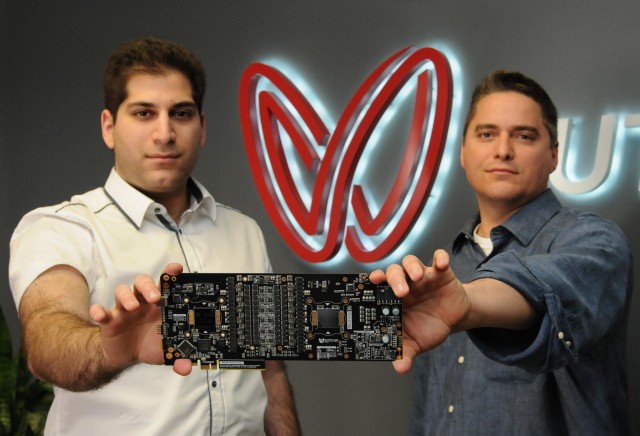
For the last two and a half years, Ars has followed BFL as it has gone from being a curious hardware startup in a nascent Bitcoin mining industry to the target of a federal investigation. Customer orders totaling millions of dollars were significantly delayed or never fulfilled. Back in 2013, Ars received an early model of a BFL miner and successfully used it to mine $700 worth of bitcoins, which we sold for cash and then donated to the Electronic Frontier Foundation. Any miners that shipped now, though, are largely worthless, as Bitcoin mining has moved to the cloud and away from individuals.
Under the terms of the new agreement, which is expected to be formally certified by the federal judge overseeing the case, BFL must pay the FTC more than $38.6 million. However, that sum will be suspended as soon as the company pays a largely symbolic $15,000 and co-founder Sonny Vleisides pays $4,000.
Jody Drake, the company’s general manager, was also hit with a $135,878 judgement, but according to the FTC, it will "be suspended once she surrenders the cash value of all Bitcoins she obtained using company machines. The judgments were suspended based on the defendant's’ inability to pay but will become due should the defendants be found to have misrepresented their financial condition."
"Even in the fast-moving world of virtual currencies like Bitcoin, companies can’t deceive people about their products," Jessica Rich, director of the FTC’s Bureau of Consumer Protection, said in a statement. "These settlements will prevent the defendants from misleading consumers."
Ars requested comment from CEO Nasser Ghoseiri; the company’s last-known de facto CFO, Bruce Bourne; and its last-known spokesman, Charles Zinkowski. As of publication, none of those individuals have responded. Civil charges against Ghoseiri remain.
Vleisides and Drake are also barred from "misrepresenting to consumers whether a product or service can be used to generate Bitcoins or any other virtual currency, on what date a consumer will receive the product or service, and whether the product is new or used."
Y U NO SHIP
The FTC had alleged that the three named members of the company’s board of directors—Jody Drake (aka Darla Drake), Nasser Ghoseiri, and Sonny Vleisides—spent millions of dollars of corporate revenue on non-corporate expenses like saunas and guns while leaving many customer orders either wholly unfulfilled or significantly delayed.In a slew of new court documents filed in September 2014, FTC lawyers alleged for the first time that not only did BFL engage in deceptive practices, but the company specifically used customer-ordered machines to mine its own bitcoins before shipping the machines out. (BFL has specifically denied mining for its own benefit.) The FTC also claimed that BFL had its employees mine for personal gain using machines that had been refused by their purchasers or that had been returned after having arrived too late to be worthwhile.
Amazingly, amidst all this alleged fraud, BFL is accused of printing giant foam pitchforks to make fun of its intensely frustrated customers. As Helen Wong, an FTC attorney, wrote to the court:
Once Defendants got around to producing Bitcoin mining machines using what were essentially interest-free loans from consumers, their first actions were not to benefit their long-suffering customers, but to pad their own bottom line. Specifically, the testimony of several former employees and Vice President of Product Development Josh Zerlan shows that instead of fulfilling orders immediately, Defendants used their customers’ machines to mine Bitcoins for themselves before shipping the now-used machines to their customers. Thus, Defendants pocketed Bitcoins that should have gone to their customers. Further demonstrating Defendants’ disregard for their customers, they used corporate funds to make and mass order red foam pitchforks mocking their own customers, emblazoned with the words, "Y U NO SHIP – BFL IS LATE!"
As of this writing, BFL’s website is still online and appears to still be taking orders. However, a statement dated January 18, 2016 said that the company has "insufficient funds to pay out all refund requests at the present time." That same BFL statement noted that in 2014 and 2015 the company paid out a total of $16.6 million in refunds.
BFL also wrote that it "laid off all employees in May (including managers and owners). Managers and owners continue to work without pay. Because of our small staff, we apologize if we are unable to respond to your emails quickly."
The same statement flatly reveals that there are "currently 1,934 orders remaining in the refund queue." For now, it seems highly unlikely that those customers will ever see a dime.
reader comments
69